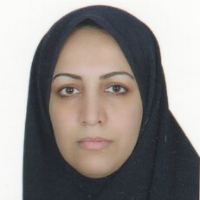Karajaki's Defense of the Authenticity of Islam (Based on the Historical Data in Kanz Al-Fava'id)
In the fourth and fifth centuries of Hijri, Muslims faced new challenges and doubts based on the diversity of the ideological composition of Egyptian and Levant inhabitants and the religious tolerance of the Fatimids. The special attention of Muslim scholars was instrumental in maintaining the coherence and consolidation of Muslim beliefs related to Islam in these areas. The covert and overt attention can be understood from this point of view in Abu al-Fath Karajaki’s writings to defend the righteousness of Islam (449 AD). Therefore, the central question of the current research has arisen when considering the method of the theologians of that period, which was to use history along with hadith and rational reasoning to prove their beliefs, and Karajaki's way of using historical reports to defend Islam. This study was conducted using the meaning analysis approach and the concept of ‘Schemata’. It shows that Karajaki's method was to link famous historical events in defending the authenticity of Islam with the miraculous aspects of God’s book (news of the future) and the Prophet’s life (PBUH). It makes the possibility of miracles more acceptable. As Christians created the negation of the schemata in the region, it led to the creation of the ideas ‘we are like them’ (by emphasizing the commonality of the prophets' miracles) and ‘we are better than them’ (miracles and prophecies connected with history). In this way, the approval of the authenticity of the Prophet (PBUH) and the Qur'an are in line with the approval of these miracles or schemata. Finally, it has also led to the establishment of the legitimacy of Islam.
-
The Investigation of Sufism Concepts Marginalization in Sheikh Sadouq's al-Amali
Leyla Najafian Razavi *, Mohammad Navidfar
Journal of Historical Perspective & Historiography, -
Sheikh Sadough's Amali, a Doctrinal-Moral Charter for the Shiites of Neishabour
Mohammad Navid Far, , Mahmoud Mahdavi Damghani
The History of Islamic Culture and Civilization Quarterly Journal of Research, -
A Study of Karajaki's Scientific Life with an Emphasis on the Critique of Views on his Discipleship near Baghdad School Leaders
, *, Maryam Azizian
Journal of Historical Studies of Islam,




